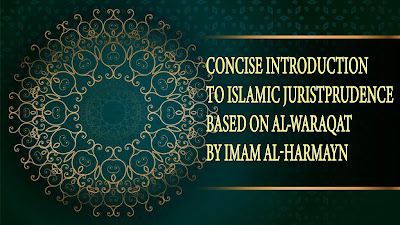89:15 As for man, when his Lord tests him by honoring him and bestowing blessings on him, he says, 'My Lord has honored me.'
89:16 But when He tests him by straitening his provision, he says, ‘My Lord has humiliated me.’
89:17 No! But you honor not the orphan,
89:18 and you urge not one another to feed the needy,
89:19 and you devour the inheritance, greedily devouring it,
89:20 and you love wealth, ardent love.
Relationship with the Previous Part
The previous part mentions that Allah is ever watchful of people’s deeds and He will justly recompense them on the Day of Judgment. Then this part reprimands man for favoring this world over the Hereafter. It also reproves people for being neglectful of performing righteous deeds and being engrossed in pursuing their lust and whims.
89:15 As for man, when his Lord tests him by honoring him and bestowing blessings on him, he says, 'My Lord has honored me.'
O man, Allah is watchful of His slaves’ deeds and statements and He will justly recompense them for what they do and say. The happy one is he who understands this fact, and complies with Allah’s commands, and avoids His prohibitions.
As for one who is heedless of obeying Allah’s commands, when his Lord, Allah, tests him by honoring him, bestowing blessings on him, and giving him sources of power and enjoyment, he says, ‘My Lord has honored me. He has given me these blessings because I deserve them.’
89:16 But when He tests him by straitening his provision, he says, ‘My Lord has humiliated me.’
This ayah mentions the attitude of man at times of affliction and hardship. When Allah tests man by straitening his provision, taking away some of His blessings on him, and afflicting him with hardship, he discontentedly says, ‘My Lord has humiliated me and afflicted me with adversity.’
Man’s attitude in both cases is blamable and indicates his weak understanding and viewpoint, and insensible perception. At times of prosperity, he is boastful and believes that he deserves the blessings that Allah has given him and that Allah has not given him these blessings out of His bounty and generosity. On the other hand, at times of hardship and adversity, he is discontent and refuses to be pleased with Allah’s decree. He does not think that Allah’s blessings are bounties that He gives him to test him as to whether he will be thankful or ungrateful. Similarly, he does not think that Allah afflicts him with hardship to test him as to whether he will be patient or not, and that He does not afflict him to humiliate him.
In sum, Allah tests people by giving them of His bounties and afflicting them with hardship to see how their attitude will be, i.e. will they be thankful at times of blessings and patient at times of afflictions or not?
The ayah mentions straitening man’s provision and does not mention other kinds of affliction that may befall man to show that the ungrateful believe that wealth is the most important thing in life. He is happy only when he owns wealth and he is miserable when he loses it. His criterion for happiness is wealth and only wealth.
Qatada, may Allah have mercy on him, said, ‘[89:16 But when He tests him by straitening his provision, he says, ‘My Lord has humiliated me.’] How quickly man disbelieves! Allah says, ‘No! I do not honor man by giving him much wealth of this world, nor I humiliate him by giving him a little of its wealth, but I honor those whom I honor by guiding them to obey My commands and I humiliate those whom I humiliate by letting them disobey My commands.’
89:17 No! But you honor not the orphan,
89:18 and you urge not one another to feed the needy,
No! O man, do not say that Allah has honored you when He gives you some of His blessings, nor say that He has humiliated you when He afflicts you with some afflictions. Allah, the Wise, may make the disbeliever rich though he has no value with Allah because he disbelieves in Allah’s Oneness. On the other hand, Allah may make the believer poor though He loves him. Both cases happen for wisdom that Allah knows and man does not know. The believer will be thankful and the disbeliever will be ungrateful.
No! You do not only say that having wealth is a sign of honoring and being deprived of it is a sign of humiliation, but you also do not honor the orphan. You leave him suffering poverty without trying to help him. Furthermore, you do not urge one another to feed the needy though Allah has given you great wealth. You spend it on satisfying your whims, but you are greedy when it comes to helping the needy and the weak.
The ayah negates that they do not urge one another to feed the needy, so it is logically understood that they do not provide the needy with food, which is an abominable act that indicates mercilessness.
89:19 and you devour the inheritance, greedily devouring it,
89:20 and you love wealth, ardent love.
Another vice of the wicked is that they devour the inheritance greedily without distinguishing between that which is lawful and unlawful and they illegally consume the rights of the weak, such as women and children. They also ardently love wealth with a great desire to collect it from any source whether it is lawful or unlawful and to accumulate it, as if they will not die or take it with them when they die.
In sum, the wicked are characterized by some evil attributes that combine verbal with non-verbal vices, namely, not taking care of the orphan, not urging one another to help and feed the needy, collecting inheritance without distinguishing between the lawful and the unlawful, and ardent love for wealth and acquiring it from any source and by any means.
Learned Lessons from Surah al-Fajr 15-20
• Man does not understand the rationale behind being rich and poor. He mistakenly believes that being wealthy is a sign of Allah’s love for him and being poor is a sign of humiliating Allah to him. However, the truth is that having wealth is not a sign of honoring, and being poor is not a sign of humiliation.
• The true sign for honoring Allah to his slave is that He guides him to obey His commands and follow the path of guidance.
• Wicked people do not honor the orphan and consume his wealth unlawfully, they ardently love wealth and strive to collect it from any source and by any means, they devour inheritance greedily to the extent that they may consume the inheritance of the weak illegally. All these attributes are vices that cause loss in this world and the Hereafter.


